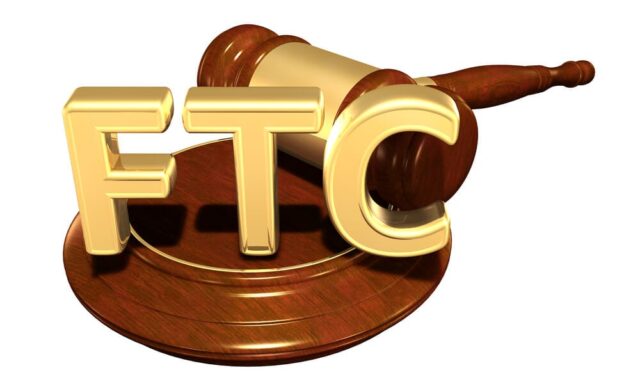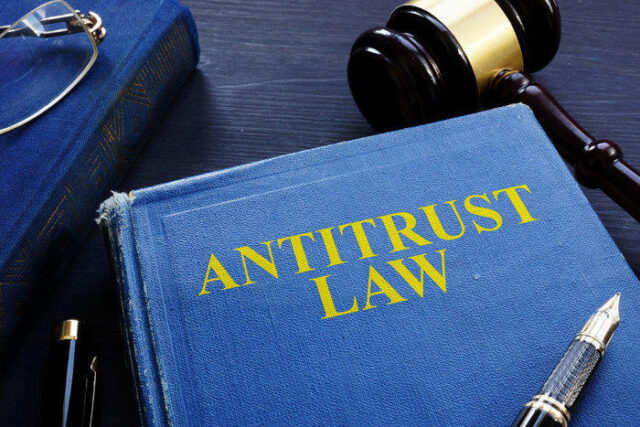
Antitrust laws have been put in place to ensure businesses compete fairly on the open market.
They protect trade and commerce from obnoxious practices like restraints, price fixing, monopolization, and discrimination. Antitrust violations are the result of breaking antitrust laws.
In this quick read, you will learn about antitrust violations and at what point you should hire a lawyer or consult a reputable law firm such as Nix Law.
What Are The Federal Statutes In Antitrust Law
The Sherman Act
The Sherman law is considered the most prominent antitrust law. It states that any contract that seeks to restrain trade is a criminal offense. For example, competitors should not merge to decide what type of customers to serve, what prices to charge, or conspire to affect customers’ ability to get quality services. The act also stipulates that it is illegal to monopolize trade.
The Clayton Act
This civil statute spells out the acts of injunction to recoup losses and punish offenders by imposing fines. This Act also spells out more violations compared to the Sherman Act.
The Robertson-Pittman Act
This Act prohibits price discrimination. It also entails interlocking directorates of mergers, acquisitions, and competing companies in the market.
Federal Trade Commission Act

Despite not being considered an antitrust law, this Act prohibits unfair competition. In addition, it serves as a supplement to the Acts mentioned above. Violating the above laws can lead to imprisonment and significant fines amounting to millions of dollars.
Lawyers can help you sue for damages if an antitrust violation has injured you. You will receive three times the dollar amount plus attorney’s fees.
Enforcing Antitrust Laws
The federal antitrust laws are enforced in the following three ways:
- Private parties can bring lawsuits when asserting damage claims
- The national trade commission can bring civil enforcement actions
- The antitrust division of the Department of Justice brings civil and criminal enforcement actions
Common Antitrust Violations
There are numerous antitrust violations, but below are the most common ones. If you encounter any of these violations listed below, contact a lawyer immediately.
Price Fixing
As previously stated, competing companies may conspire to establish an agreed-upon price either at a wholesale or retail level, hence affecting the ability of customers to get the services and products they deserve. Companies can do this by setting a maximum or minimum price to express boundaries for prices.
Bid Rigging

Bid rigging also considered a form of price fixing, occurs when independent contractors combine to compete against each other in the following ways:
- Agreeing not to bid in what is referred to as bid suppression
- Deciding to bid under a specific amount
- Taking turns when bidding for certain jobs
Market Division
Market division occurs when competing companies agree that they will not compete concerning particular products in specific geographical areas as agreed upon. In most cases, such kinds of agreements also constitute bid-rigging.
Boycotts
As the name suggests, boycotts occur when competitors agree not to serve particular customers on a retail or wholesale level. The primary purpose of boycotts is to ensure that some customers do not purchase certain products or services.
Trying
Trying occurs when a seller only chooses to sell products to buyers on the condition that they will not purchase different products from another seller. In this case, buyers are coerced into buying products from the seller instead of any other competitor.
Monopolization

Monopolization occurs when a seller tries or succeeds in maintaining and increasing a product’s market power through anticompetitive tactics. At this point, the seller ensures that the market is locked up against competitors.
Guidelines And Hints
In some states in the U.S., regulations are more stringent. A law firm can help you if you want to avoid getting on the wrong side of the law. It is worth mentioning that these guides offer a partial statement regarding antitrust laws.
Review these guidelines with your attorney to ensure the basics are conveyed to your sales representatives and other employees.
To be on the safe side:
- Avoid discussing the prices of your products with your competitors. Also, avoid attending meetings that focus on pricing. Should you be in a forum and the topic pops up, protest or refrain from such discussions
- Refrain from discussing any issues that concern allocating customers
- Avoid debating the prices retailers charge for your products
- If you are a wholesaler, avoid talking to your retailer customers about how you deal or sell to other customers.
- Don’t expect a customer to buy only products from your company
- A customer should not accept a product from your store to get another.
- Never make purchases or sales conditional on reciprocal sales or purchases
- Refrain from expecting or suggesting purchasers buy products from your company because you also buy from them
- It would be more effective if you never charged different prices for the same volume of products to customers who compete with each other.
- Never belittle a competitor’s product unless you can prove why you charge the way you do
What Are The Penalties For Violating Antitrust Laws?

On the criminal side
You can bring the offenders to justice if you encounter any of the above violations. Violating antitrust laws results in a felony, and offenders can be sent to jail. In addition to facing a jail term, offenders can face severe financial penalties.
In essence, the Sherman Act charges penalties of up to $100 million and $1 million for corporations and individuals, respectively.
On the civil side
Defending a private antitrust violation is costly and can cost millions. Plaintiffs can seek to recover their actual damages in triple amounts in conjunction with their lawyers’ fees. This will make the total amount run into tens or hundreds of millions.
Partner With A Reputable Law Firm
The above brief is an overview of trust violations and cannot be wholly relied upon as legal advice.
If you want more information regarding the violation of antitrust laws and violations, or you suspect an individual or company who has violated the antitrust laws, the most effective course of action is to discuss the matter with a lawyer.













